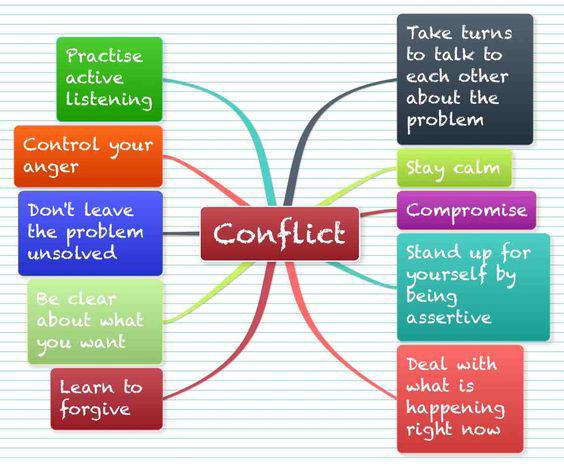
2 minute read
Conflict Management
from Business Studies Grade 12
by Impaq
Synergy
Everyone knows the old adage ‘A chain is only as strong as its weakest link’, but the synergy that is created when teams work together results in it often being referred to as ‘1+1=3’.
This is well illustrated by John Maxwell as follows:
If each of 5 team members puts in an effort of 3 units:
3x3x3x3x3 = 243 total units
If each member now puts in only 1 extra unit of effort:
4x4x4x4x4 = 1024 total units!
So, effectively, 5 additional units of effort have had a fairly dramatic effect within the team context!
(John Maxwell. 1993. Developing the leader within you. P180. Thomas Nelson Publishers. Nashville)
Synergy
Synergy: The interaction of two or more agents or forces so that their combined effect is greater than the sum of their individual effects.
2. Conflict Management
Wherever there is a clash of interest or potential for disagreement relating to facts or assumptions, there may be conflict. Unless this conflict is managed and resolved it could cause harm to the business.
Conflict is a disagreement through which the parties involved perceive a threat to their needs, interests or concerns.
2.1 Functional vs. Dysfunctional Conflict
Conflict is not always bad, but could in fact spark creativity, allowing people to develop and grow. It may even lead to change and improve the productivity in the enterprise. Whether conflict is good or bad will, however, be determined by how the emotions surrounding the conflict are handled.
Functional Conflict – This is a non-aggressive form of conflict which stimulates creativity and allows ideas to flow, such as used in brainstorming. In this instance people can disagree but still work together to find a solution. The outcome is often positive and results in higher productivity.
Dysfunctional Conflict – An aggresive type of disagreement where people refuse to work towards a solution and the task is compromised, which results in reduced productivity and a waste of valuable human capital resources.
2.2 Advantages and Disadvantages of Conflict
Advantages of Conflict
○ Conflict may help to create an awareness of a problem that can then be addressed to the benefit of the business.
○ Conflict may stimulate creative thinking.
○ Conflict may help people to understand a problem better or to learn from one another.
○ Conflict may lead to collaboration where the focus shifts to working together by encouraging ownership and commitment in a team.
○ Conflict may motivate people to give input and to get involved or to participate in a situation where they previously felt apathy.
Disadvantages of Conflict
○ Unless the conflict is managed to create positive spin-offs it may hamper productivity and lower morale.
○ Negative conflict may lead to inappropriate behaviour such as violence due to feelings of confusion and frustration.
○ If the conflict is not managed to the benefit of all, however, it may distract from critical issues and lead to poor quality decision-making.
Source: https://za.pinterest.com/jeff3814/conflict-management/?lp=true





